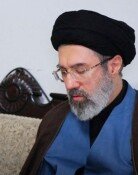[Opinion] Propaganda and Publicity
[Opinion] Propaganda and Publicity
Posted October. 29, 2005 03:14,
Joseph Goebbels, the former Nazi propaganda minister, once argued, The public will believe lies if they are loudly repeated. That is a largely false theory. Propaganda appeals to the emotions of the public and sometimes uses lies if necessary in order to attract the public to certain political causes. By contrast, publicity in modern democracies has a positive connotation, which creates favorable public opinion by providing accurate information.
However the distinction between the two concepts is vague. Judith Miller, a reporter for the New York Times, who was jailed for 85 days for refusing to disclose confidentiality about correspondents, and highly praised as a heroine, was later found out to be a victim of government propaganda. It is said that she has been being investigated by her company recently because her frequent articles on Iraqs suspected possession of Weapons of Mass Destruction (WMD), quoting a secret source from the White House prior to the U.S. invasion of Iraq, were possibly related to the governments information disclosure issues.
There are various ways to disseminate propaganda. Complex controversies may be simplified or argumentative points may all of a sudden be altered. For example, in 2002, the then presidential candidate, Roh Moo-hyun, responded to the criticism that his father-in-law was involved in the leftist movement, saying, Do you want me to abandon my beloved wife? It ended up dispelling the heated debate.
Manipulating statistics is typical as well, according to the saying: There are three kinds of lies, lies, dammed lies, and statistics. The government released false statistics prior to its comprehensive real estate plan declared on August 31 by saying, The top one percent of the rich in Korea possesses 51.5 percent of the total private land.
It is said that the government has banned public officials from writing articles for certain news media. It is also said that some promotion department officials in government agencies even look the other way at errors on newspapers online so that more articles could be corrected and publicized later on, which would hurt newspapers. Meanwhile, the presidents PR secretary Cho Ki-sook said, It is hard to promote his image because he himself is reluctant to cheat the public by seemingly focusing on an economic turnaround. The participatory government seems to be confused between propaganda and publicity. The starting point for the latter is truth.
Lee Dong-kwan, Editorial Writer, dklee@donga.com







